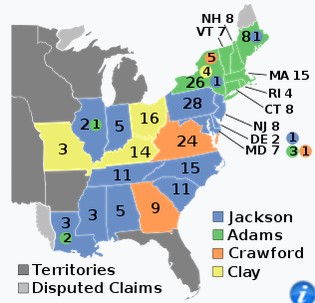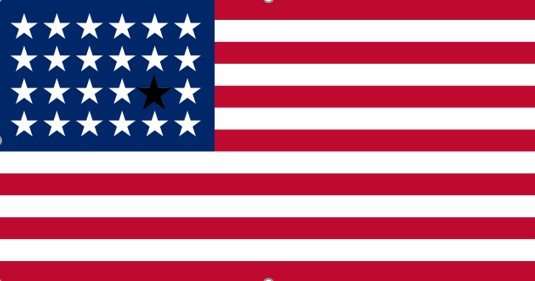ELECTION DAY: The presidential election is thrown into the House of Representatives as no candidate has received a majority (131) of Electoral votes. Those receiving votes are:
- Ninety-nine votes – Republican (constitutionalist) Senator Andrew Jackson, of Tennessee;
- Eighty-four votes – Republican John Quincy Adams, Secretary of State;
- Forty-one votes – Republican William H. Crawford, Secretary of the Treasury;
- Thirty-seven votes – Republican Speaker Henry Clay, of the House of Representatives.
In accordance with Article XII of Amendment, the House of Representatives will caucus by States, with each State having one vote to decide between the top three candidates: Jackson, Adams and Crawford.
In the election for Vice President, Republican John C. Calhoun, Secretary of War (a non-candidate) who with the endorsements of both Jackson and Adams, easily wins election with 182 Electoral votes. Others receiving votes are:
- Forty-one votes – Republican William H. Crawford, Secretary of the Treasury;
- Thirty votes – Republican Senator Nathan Sanford, of New York;
- Twenty-four votes – Republican Senator Nathaniel Macon, of North Carolina;
- Thirteen votes – Andrew Jackson;
- Nine votes – Republican Senator Martin Van Buren, of New York;
- Two votes – Henry Clay;
- One vote – ABSTAIN.
[restored 12/31/2021]
Subsequent Events:
Authority:
Article XII of Amendment
ccc-2point0.com/constitution-for-the-united-states
References:
Calvin D. Linton, ed. The Bicentennial Almanac: 200 Years of America, 1776-1976, (Nashville, Tennessee: Thomas Nelson, 1975), 91.


